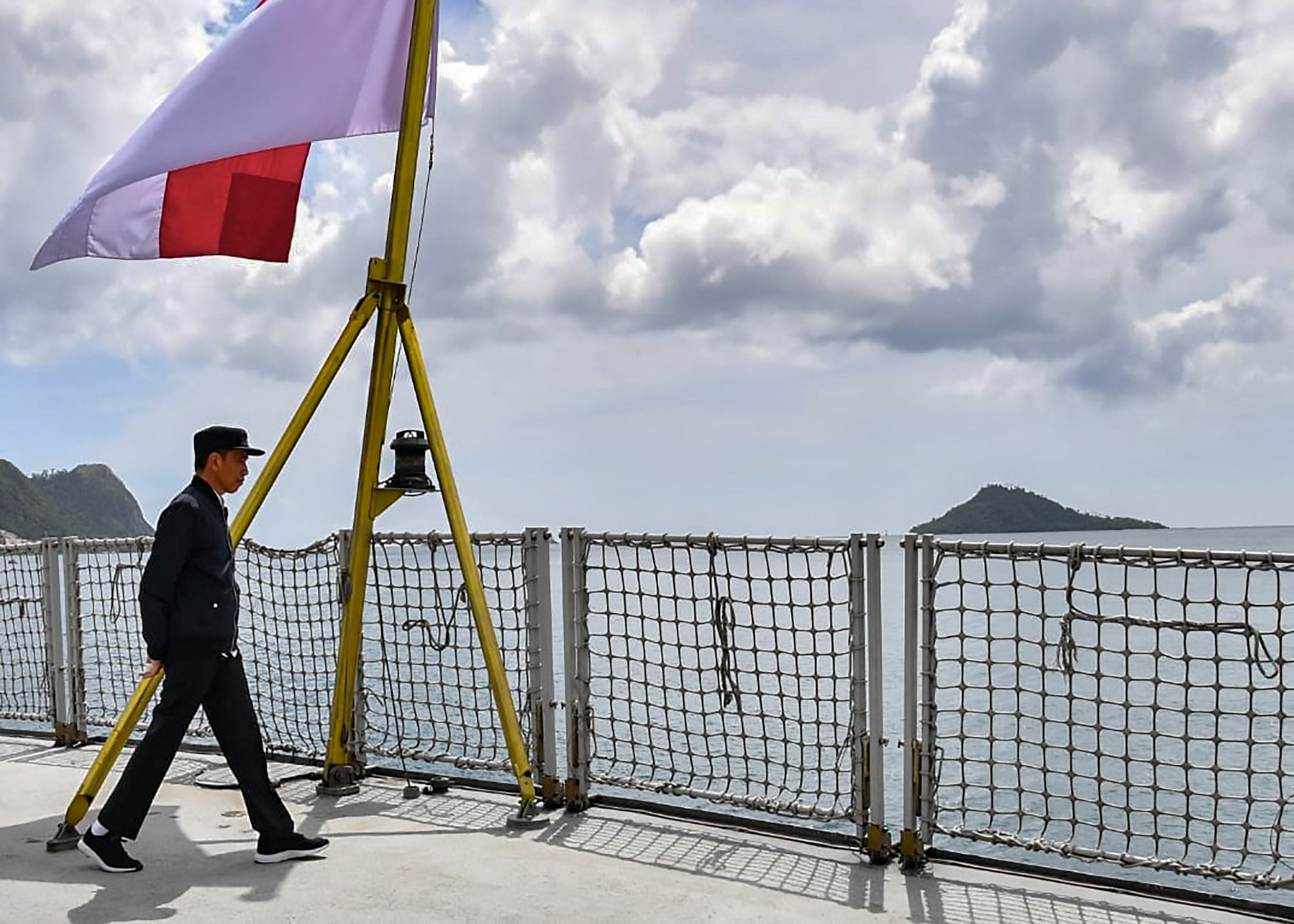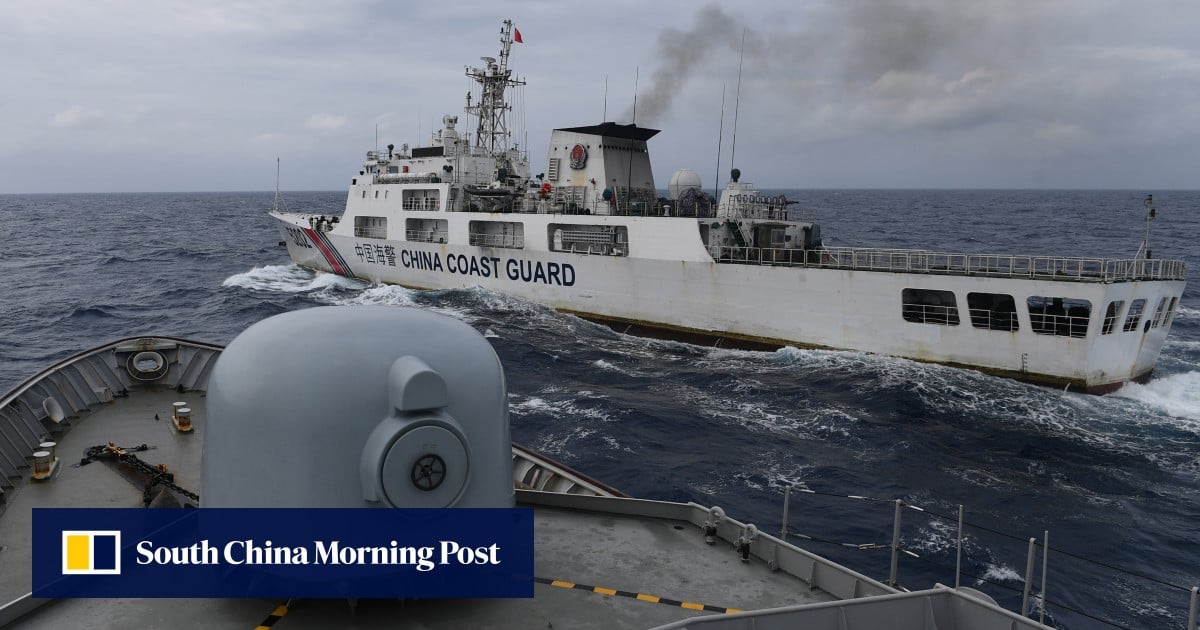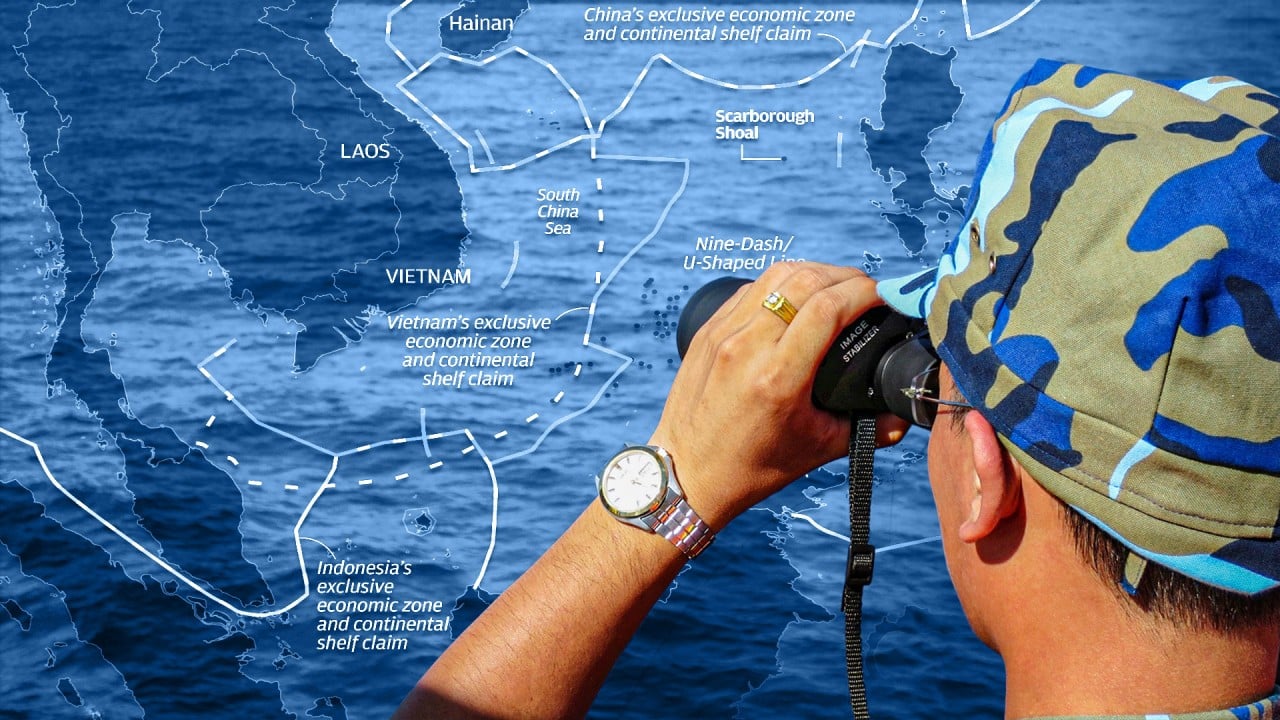Indonesia is not a claimant in the South China Sea but its exclusive economic zone (EEZ) in the North Natuna Sea falls within China’s so-called nine-dash line, which Beijing uses to claim around 90 per cent of the disputed waters.
Skirmishes have flared up in the disputed waters a number of times in recent years, including in December 2022, when China sent Coast Guard 5901, the world’s largest coastguard vessel, to patrol the North Natuna Sea.
“In 2023, China again unilaterally issued a new map, adding one-dash line [to its standard map], so its 10-dash lines claim the entire South China Sea region. In some parts, the dotted lines overlap with our EEZ in the North Natuna Sea,” Hadi Tjahjanto, Indonesia’s minister for political, legal and security affairs, said on Tuesday during the seminar held in conjunction with the release of the ISDS survey results.
“This caused strong protests from all countries, including Indonesia. We object because the map does not comply with the 1982 UNCLOS,” he added, referring to the United Nations Convention on the Law of the Sea, which regulates all uses of the ocean and its resources as well as disputes among signatory nations.
“Instability in the South China Sea will have a global impact and become … a threat to our national interests.”
However, the ISDS survey indicated that not all Indonesians shared Jakarta’s view on the potential for conflict in the region. While more than a third of respondents perceived there to be “a threat for control of maritime areas” in the North Natuna Sea, 22 per cent said there was “no external threat” to Indonesia’s sovereignty there.
The survey also showed that 14.3 per cent of respondents felt Indonesia could strengthen its sovereignty in the disputed waters by boosting economic cooperation with China.
Another 16.7 per cent said Indonesia should work with the United States, chiefly to develop the domestic defence industry.
But among all the potential options, 39.1 per cent of respondents said Indonesia should partner other Association of Southeast Asian Nations (Asean) countries – namely Malaysia, Singapore and the Philippines – to strengthen sovereignty in the South China Sea. Nearly half (47 per cent) agreed that Indonesia should form a defensive alliance with them.
“Realistically, a defensive alliance could be the answer, but we understand that there is a national doctrine that says that Indonesia will never form a defensive alliance,” said Agus Widjojo, Indonesia’s ambassador to the Philippines.
China ‘sending a signal’ to Indonesia with large coastguard ships near island
China ‘sending a signal’ to Indonesia with large coastguard ships near island
Agus agreed with the idea of relying on Asean to solve the territorial disputes in the South China Sea, but said Indonesia should also boost its diplomatic efforts to strengthen its position in the North Natuna Sea.
He noted that Philippine President Ferdinand Marcos Jnr had been successful during overseas trips seeking allies for his country’s efforts to repel Chinese influence in the South China Sea.
“Many countries support Philippine sovereignty in the West Philippine Sea,” the ambassador said. “From these trips, [Marcos Jnr] also received a lot of military assistance and investment. This is the area that we should strengthen, too.”
According to Irvansyah, head of Indonesia’s Maritime Security Agency (Bakamla), most of the foreign vessels that traverse Indonesia’s EEZ in the North Natuna Sea are civilian ones, “so we don’t necessarily have to deploy the navy first in dealing with these vessels”.
“In several countries that I visited, such as Vietnam, the Philippines [and] Malaysia, we are of the view that tensions tend to rise in the South China Sea if the military is involved,” Irvansyah said during the seminar. “Fellow coastguards in Asean feel that our cooperation needs to be strengthened.”

Irvansyah said Bakamla initiated the establishment of the Asean Coast Guard Forum last year to facilitate communication among the region’s maritime security forces. The Philippines will take over the forum’s chairmanship from Indonesia in June in Davao.
“But the final solution, to make life peaceful in the North Natuna Sea, is to strengthen the Indonesian military, so it’s stronger than China’s,” he said.
ISDS co-founder Erik Purnama Putra said Indonesia was “not ready” for conflict in the South China Sea.
“Our budget for the defence sector is really small, only 0.8 per cent of GDP in the past 20 years. We need to collaborate with Asean countries to prevent conflict from happening in the region,” he said during the seminar.
Aside from increasing the budget to revamp maritime security, Erik also urged officials to continue with the Asean Solidarity Exercise, a joint military exercise for Asean states that Indonesia hosted for the first time in September.


